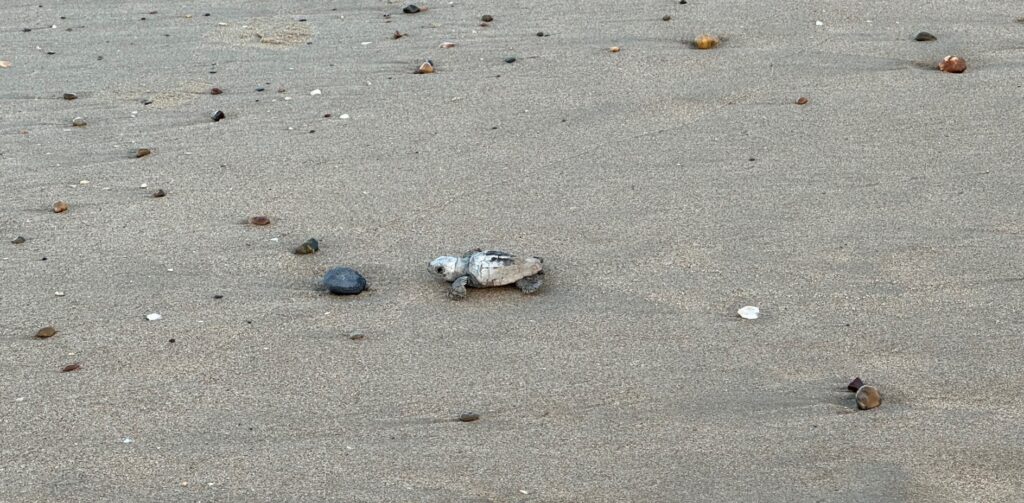
Another round of invasive fox control has been completed along the coast to help protect nests and hatchlings of marine turtles that visit the region’s beaches.
Round 7 of the Nest to Ocean Turtle Protection Program, led by Burnett Mary Regional Group (BMRG), has now wrapped up with a total of 50 foxes humanely removed from the Moore Park Beach, Burnett River and Wreck Rock (Deepwater National Park) areas over a total of 90 days.
These on-ground control works have contributed to the overarching goal of the Nest to Ocean project: to protect the rookeries of loggerhead, green and flatback turtles that nest on the beaches of these areas.
“Introduced foxes pose a significant threat to turtle eggs, hatchlings and other native wildlife,” BMRG project lead Victoria Clarke said.
“Mortality rates of young turtles and eggs are already incredibly high, even without human-caused threats like introduced species.”
Victoria said that the Nest to Ocean project aimed to reduce predation by invasive foxes on turtle numbers by humanely removing these predators from areas where turtle nesting rates were high.
“We can’t alleviate the problem completely but we can at least keep it under control,” she said.
BMRG has engaged the services of several invasive species control contractors throughout the duration of Round 7, including Silent Night Pest Management and Bush to Bay Weed Control.
“Research has shown that 1 in 1000 turtle hatchlings make it back to the beach as an adult,” Bush to Bay Weed Control’s Daniel Borg said.
“Every fox we trap is a start in helping these turtles make it back.”
Silent Night Pest Management’s Shane Jackson said the work in invasive species control needs to be continuous and ongoing.
“If the control stops, there’ll be a brief grace period with low fox numbers, but then we’ll see those fox numbers grow back up again and then we’ll be back to square one,” he said.
Victoria emphasised projects like Nest to Ocean were a crucial part of protecting these iconic and already vulnerable marine reptiles.
“Our contractors have had great success in reducing the numbers of foxes at major turtle nesting sites so far, and we want to see that hard work continue through future rounds of projects like Nest to Ocean,” she said.
- Other news: Italian-Australian meeting to connect community




